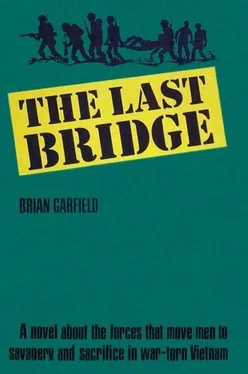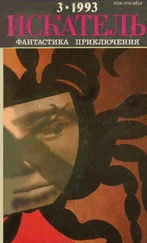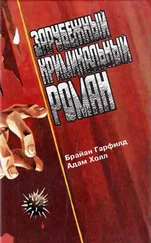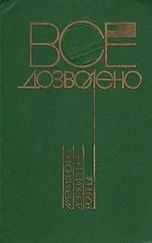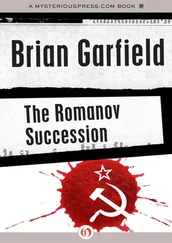McKuen’s face was pale in the light from the instruments, the angles of his features drawn sharp — long, straight nose and long, straight forehead, brush of red hair and the long line of the jawbone unmarred by flesh folds, deep creases running from nostril to lip corners: a young man with drive and a great many violent tempers.
McKuen said, “I’ve flown some bloody silly missions, but this one takes the prize. No regrets, maybe, but I think I’m getting a little old.”
“At twenty-six?”
“Sure. I’m getting settling-down urges. I don’t know. A year ago I wouldn’t have hesitated. This time I had to think about it — I had to let Saville push me into it. It’s no good to get cautious in this game, Mister.”
Shannon said nothing. He dropped the controls to a slightly lower pitch, and McKuen watched the airspeed indicator climb a notch or two. “I was flying a bunch of Pentagon pencil pushers to Bengasi. We got forced down. That Godawful Libyan desert. At least this time, whatever happens, we won’t have to land on sand. Well, sometime we’ll all die anyway. To be sure.”
The plane droned north-northwest. In the cargo cabin the five passengers sat on benches along the fuselage walls, surrounded by parachutes and scuba diving apparatus, weapons, and packs. A few lights glowed at irregular intervals in the cabin. The plane’s heat controls did not work, and the five men huddled against the cold night air of seven-thousand-foot altitude. Sky moved slowly by the little windows, and the engines were a loud pounding in the center of the cabin, radiating through ears and vibrating bones. A little electric fan, which did not work, was bolted loosely near the ceiling at the forward end of the cabin; it rattled incessantly like a man shaking a penny around inside a tin can.
Far back along the passage, near the passenger door in the tail section, Sergeant Khang sat by himself, using a honing stone to sharpen the blade of his bayonet. His eyes sparkled with some secret humor, but he looked very cold and very dark and very much alone just the same. He had his service automatic buckled to his waist and a Russian AK submachine gun lying between his feet. Sergeant Khang was North Vietnamese by birth, but training in the American Army and the Special Warfare School at Fort Bragg had made him a member of an extranational club of icemen. He met and held the baleful glance of Sergeant Hooker.
J. D. Hooker sat farther forward, between the wings, opposite the other three passengers. A thick black hair grew out of his left nostril. He was forever tugging at it. His appearance was bestial; his brutal instincts were tuned fine: J. D. Hooker could feel a man’s pulse beating through six inches of armor plate. His father had been an unidentified Marine who had spent one night in Mobile on his way to Pensacola.
Theodore Saville had a map in one huge fist. He scratched his drum-taut belly with the other hand. His face was lowered as though he were listening for some alien sound against the steady hum of engines and wind. His massive chest slowly rose and slowly fell with his breathing. He said, “I’d like a beer. We ain’t got any beer, have we?”
“Coffee in that steel jug,” Tyreen said.
There was no more conversation for a while. Another light in the cabin winked out, plunging the tail section into full darkness, obscuring sight of Sergeant Khang. He did not seem to mind; he kept his solitary post there. Forward through the aisle the instrument lights made a faint glow. Saville said, “If another light goes out, I’ll have to read this map by braille.”
In the bad light, Tyreen’s hair seemed gray, and his long face was blurred and uncertain. There was something of a gloss on his eyes, and his face was not dry. Theodore Saville watched him with quiet concern. Saville folded his map and said, “I remember a plane like this, once. When the Reds shot up my leg in Korea I had a ride to Japan in one of these old crates, with all the lights burned out and all the furniture gone away a long time ago. They hung us in hammocks and I remember a nurse, real pretty brunette. She had a ukelele, and she was singing a bunch of songs. My leg hurt like hell, and the only way I kept from going off my Goddamn head was listening to that girl singing. She had a crummy voice, but she was there. I couldn’t even see her — the lights were even worse than these here. I got a look at her face in the morning when they unloaded us at Itami. She was beautiful.”
The plane jiggled through a patch of rough air and leveled off sluggishly. Saville opened the coffee jug and filled its lid with coffee and drank.
Sergeant Nhu Van Sun struck a match and put it to his cigarette. Looking outside, he could see in the light of the engine exhaust flame the gentle up-and-down swing of the aileron tabs, keeping the plane on steady course. He put his nose to the window and looked down past the wing’s trailing edge and saw the top of the velvet rain cloud extending away without a break in all directions, faintly glimmering. The loose fan rattled incessantly in the fuselage; the old craft lumbered through the sky. Sergeant Sun was big and tough, but he had a certain air of youthful curiosity and uncertainty. He came from a town called Ba Dong near one of the mouths of the Mekong Delta: he had been a farmer. He was thinking of his wife and his three infant girls when J. D. Hooker spoke abruptly at him.
“What do you think you’re staring at?”
Sergeant Sun said, “Nothing. I not think about—”
“You Goddamn people never do,” said Hooker. “For two puking cents I’d—”
“At ease, Sergeant,” said Theodore Saville.
Hooker’s glance swung toward him. “Captain, you ask me, I’d say don’t trust either one of these peckerheads.”
“I didn’t ask you,” Saville said. “Button it up.”
Hooker lowered his thick brows and did not speak again. Sergeant Sun looked at him for a moment; whatever his feelings were, he kept them to himself.
David Tyreen stood up and went forward to the cockpit. His voice issued back very faintly. “When we pass Da Nang set your course due north across the Gulf of Tonkin. We’ll skirt the west side of Hainan and turn northwest on a heading of three-two-five when we cross the nineteenth parallel. It should put us over the drop zone just before first light. After the drop you’ll have to swing sharp left and climb to avoid the mountains.”
“How high?” said George McKuen.
“Some of the peaks are seventy-five hundred feet high. There’s one mountain that’s about eight thousand.”
“That’s bloody decent. The way we’re flying right now, I’d say the operational ceiling of this aircraft might be maybe eight thousand feet. Ducky, Colonel, ducky. I can’t get any more power out of number two engine than we’re getting right now. And I am getting the feeling she may conk out.”
“There’s a guerrilla landing strip back in the mountains,” Tyreen said. “Where’s your chart?... There. If you have to, you can put down on that. It’s an emergency field. One of those perforated-steel-strip runways. It’s not very long, and you have to land uphill.”
“What?”
“The strip slopes uphill.”
“Jesus,” said McKuen.
“One of our teams is holed up near there. But I doubt you’ll need it. You’ll get home, Lieutenant.”
Forty minutes beyond Da Nang, and within easy radar range of the Red Chinese air base at Sama on the island of Hainan, the gooney bird’s number two engine sputtered, coughed, spat blood, and finally caught again. It kept running. McKuen kept one eye on it. A jaunty, cavalier, cocked-eyebrow d’Artagnan, he grinned at Mister Shannon and said, “Flying is so dangerous around here, even the bloody pigeons travel on foot.”
Читать дальше
